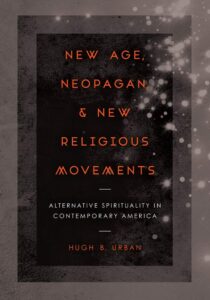Spirit Science is a set of beliefs that blend spiritual concepts with pseudoscientific ideas. While some find it inspiring, it’s not recognized by the scientific community and may promote misinformation.

Spirit Science has gained popularity in recent years, particularly among those seeking alternative explanations for life’s big questions. But what exactly is Spirit Science, and why does it spark both fascination and criticism?
What is Spirit Science?
Spirit Science is a belief system that attempts to explain the nature of reality, consciousness, and human existence by combining elements of spirituality, alternative science theories, and various religious and mystical traditions.
It presents itself as a bridge between scientific understanding and spiritual wisdom, often using scientific-sounding language to describe metaphysical concepts.
Key Components of Spirit Science
Spirit Science encompasses a wide range of ideas. Here are some of its central concepts:
- Sacred Geometry
Spirit Science places great importance on geometric patterns and their supposed influence on reality. Proponents believe that certain shapes and mathematical ratios are fundamental to the structure of the universe and can affect consciousness.
- Human Consciousness and Evolution
Spirit Science often proposes theories about the nature of human consciousness and its potential for evolution or expansion. This may include ideas about “awakening,” reaching higher states of awareness, or activating dormant parts of the brain.
- Energy Fields and Chakras
Many Spirit Science teachings involve concepts of subtle energy fields surrounding the human body, often referred to as auras. The chakra system, borrowed from Hindu and Buddhist traditions, is frequently incorporated into these ideas.
- Alternative History
Spirit Science often includes unconventional historical narratives, such as advanced ancient civilizations like Atlantis or extraterrestrial influences on human development.
- Quantum Mysticism
Some Spirit Science proponents use interpretations of quantum physics to support spiritual claims, although these interpretations are generally not accepted by physicists.
Origins and Popularization
While the term “Spirit Science” is relatively new, many of its concepts have roots in older New Age and esoteric traditions. The modern popularization of Spirit Science is often attributed to Jordan Duchnycz, who created a series of animated videos on these topics in the early 2010s.
These videos, which blend spiritual concepts with colorful animations and accessible explanations, helped spread Spirit Science ideas to a wider audience, particularly young people interested in alternative spirituality.
The Appeal of Spirit Science
For many followers, Spirit Science offers:
- A sense of meaning and purpose
- Explanations for life’s mysteries
- A feeling of connection to something greater
- Hope for personal and collective transformation
- A community of like-minded individuals
Criticisms and Controversies
Despite its appeal to some, Spirit Science faces significant criticism from various quarters:
Scientific Community
The mainstream scientific community largely rejects Spirit Science claims due to:
- Lack of empirical evidence
- Misuse or misinterpretation of scientific concepts
- Reliance on anecdotal rather than systematic evidence
Skeptics argue that Spirit Science often employs pseudoscientific language to give its ideas an appearance of credibility without adhering to scientific methods.
Religious Groups
Some religious organizations criticize Spirit Science for:
- Mixing elements from different faith traditions
- Promoting what they see as “New Age” beliefs
- Potentially leading people away from established religions
Health Concerns
Critics worry that some Spirit Science beliefs could lead to:
- Rejection of evidence-based medical treatments
- Pursuit of unproven alternative therapies
- Delays in seeking necessary medical care
Historical and Cultural Appropriation
Some scholars and cultural groups express concern about Spirit Science’s use of:
- Decontextualized indigenous spiritual practices
- Oversimplified or inaccurate historical narratives
- Concepts from various cultures without proper understanding or respect
Potential for Misinformation
In the age of social media, Spirit Science ideas can spread rapidly, leading to concerns about:
- The viral spread of unverified claims
- Difficulty in distinguishing between fact and speculation
- Potential reinforcement of conspiracy theories
The Debate Continues
Supporters of Spirit Science often argue that:
- Conventional science is too limited in its scope
- Personal experiences validate Spirit Science concepts
- These ideas promote positive personal growth and global change
Critics maintain that:
- Extraordinary claims require extraordinary evidence
- Personal experiences, while meaningful, aren’t sufficient proof
- Promoting unproven ideas can be harmful

Finding a Balanced Approach
For those interested in exploring Spirit Science ideas, consider:
- Maintaining Critical Thinking: Question claims and seek evidence.
- Consulting diverse sources: Look beyond Spirit Science materials for balanced information.
- Respecting Science: Understand the scientific method and its importance.
- Prioritizing Health: Don’t substitute unproven practices for necessary medical care.
- Cultural Sensitivity: Be aware of the origins of spiritual practices and respect their contexts.
- Personal Reflection: Consider what draws you to these ideas and what benefits or risks they might pose.
Key Takeaways
- Spirit Science blends spiritual concepts with pseudoscientific ideas about reality and consciousness.
- It appeals to many due to its offer of meaning, purpose, and alternative explanations for life’s mysteries.
- The scientific community largely rejects Spirit Science claims due to lack of empirical evidence.
- Critics worry about potential health risks, cultural appropriation, and the spread of misinformation.
- Those exploring Spirit Science should maintain critical thinking and consult diverse sources.
While Spirit Science continues to fascinate many, it remains a controversial topic. By approaching it with an open yet critical mind, individuals can engage with these ideas while maintaining a grounded perspective on their validity and potential impacts.
Hey there! We hope you love our fitness programs and the products we recommend. Just so you know, Symku Blog is reader-supported. When you buy through links on our site, we may earn an affiliate commission at no extra cost to you. It helps us keep the lights on. Thanks.
Disclaimer: The information provided in this discussion is for general informational and educational purposes only. It is not intended as medical or professional advice. Only a qualified health professional can determine what practices are suitable for your individual needs and abilities.

